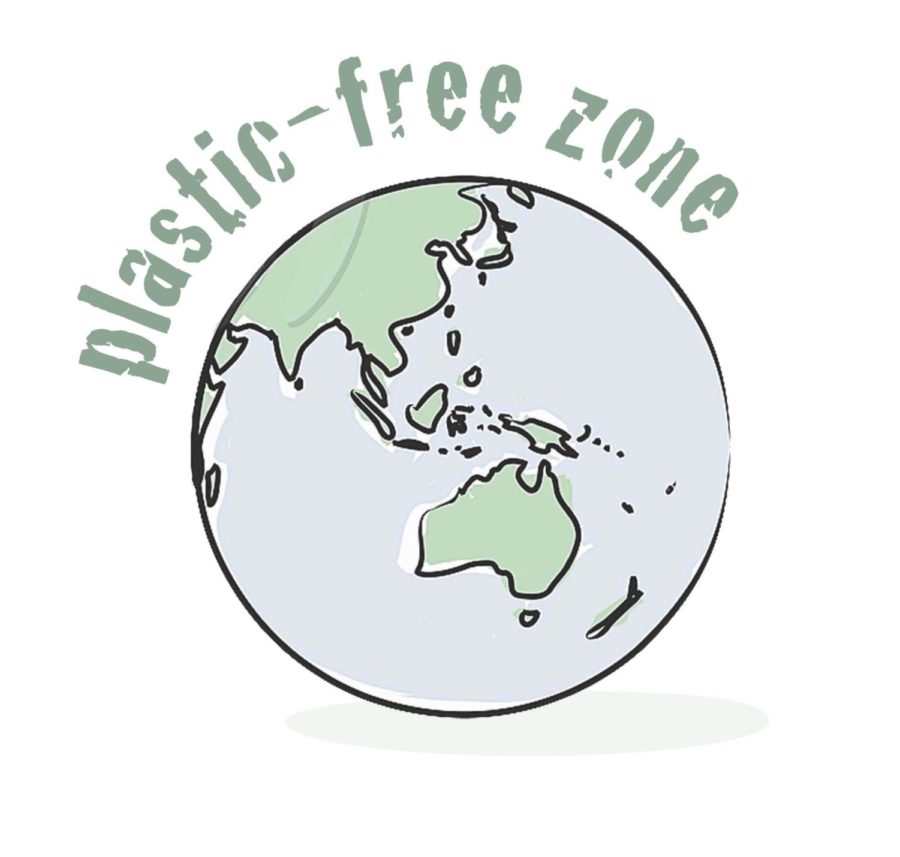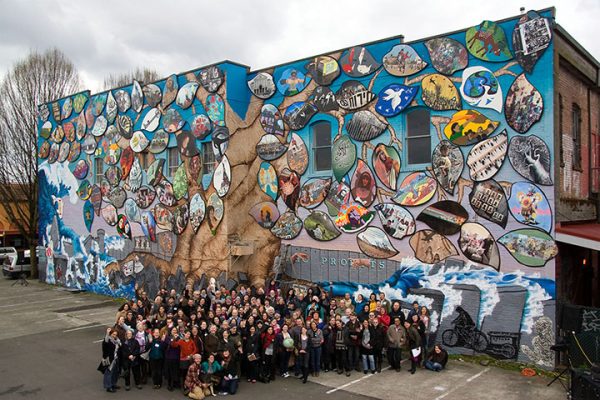Why Start Reducing Plastic?
Drawing that promotes a plastic free zone.
April 9, 2018
Throughout the world, a plastic-free revolution is taking place due to increased environmental awareness. In the United States, change occurs at a frustratingly slower pace. Most people agree that the huge amount of plastic we use is a problem, but a problem no one agrees on how to fix.
Plastic is extremely damaging to the environment; most people have seen documentaries about birds choked in plastic bottle rings, and fish swimming in oceans of plastic. In fact, we dump over eight million tons of plastic in the ocean per year. So much micro-plastic pollutes the ocean that it has formed the Great Pacific Garbage Patch, turning the water into what National Geographic called “a cloudy soup”. Clearly, every country must take action to avoid Planet Earth becoming Plastic Planet.
Different parts of the world have taken preventative measures. In Rwanda, the government bans plastic bags completely: punishment for their possession is up to four years in jail or a $19,000 fine, reports the New York Times. The heavy enforcement pays off, keeping Rwanda spotless and minimizing any environmental damage. The major Dutch supermarket chain Ekoplaza introduced the “world’s first plastic free aisle” to their store, telling the New York Times the idea would expand to “all 74 of its stores by the end of the year”.
Meanwhile, the United States causes enormous amounts of plastic pollution, and avoids taking serious action. Individual state governments have passed laws that restrict plastic-use in grocery stores. But as the Los Angeles Times put it, “This item-by-item, city-by-city approach isn’t going to cut it.” Policies that reduce plastic pollution need to be passed at a federal level.
Unfortunately, environmentalism sits low on our president’s list of priorities. Trump has overturned dozens of pollution regulations already, including a bill proposal that would stop the sale of disposable plastic water bottles in national parks. Unless pressured by the public, it’s unlikely he will ever acknowledge the severity of plastic pollution.
On an individual level, by making a few small changes to our lifestyle we can have a big impact. Replace plastic shopping bags and water bottles with reusable ones. “It’s not too hard to buy a reusable bag,” pointed out Melissa Even, 10.
Food packaging is one of the most major uses of plastic, so as you stroll through a grocery aisle, consider buying more items wrapped in paper. If they’re available, you can opt for paper drinking straws and coffee cups instead of the non-biodegradable plastic ones. As Sian Sutherland, founder of the organization a Plastic Planet, said to the New York Times, “There is absolutely no logic in wrapping something as fleeting as food in something as indestructible as plastic.”









